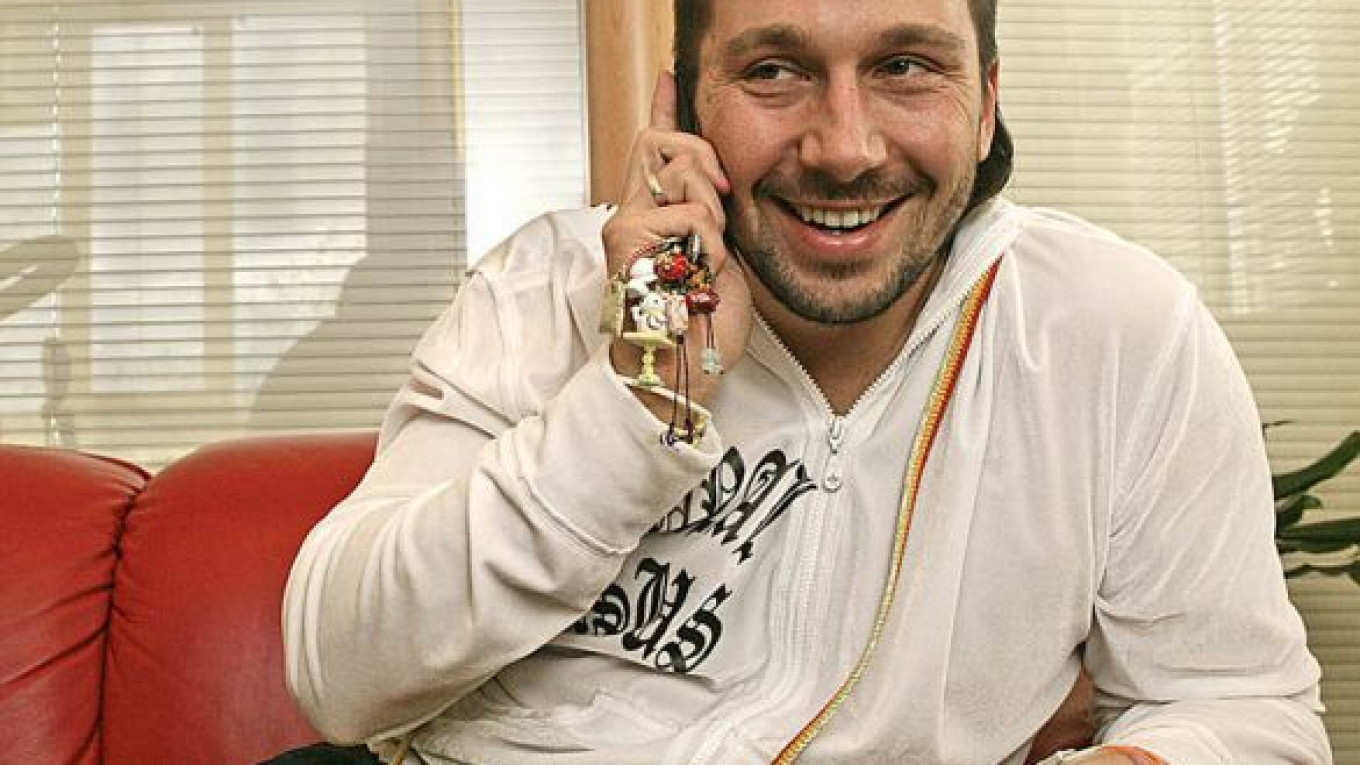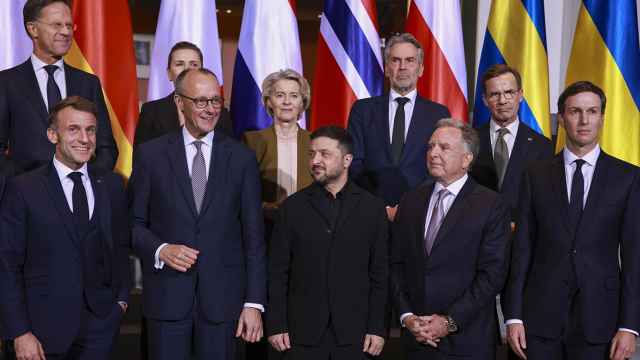LONDON — A failed hit on a former Russian banker in London has sent a chill through Russian immigrant circles and shone an unwelcome spotlight on a hidden criminal underworld encroaching on the British capital.
The shooting also raised concerns Britain might be turning into a playground for Russian mobsters as gangland violence appears to spill over Russian borders into European capitals.
London is the chosen home for many Russians seeking a haven from the cut-throat world of their homeland where, 20 years after the Soviet collapse, they have little faith in the rule of law.
Now, some exiles say, few are safe in a city known affectionately as "Londongrad" to many of its Russian inhabitants.
"Everybody is trying to figure out who their enemies might be," said Yevgeny Chichvarkin, a business tycoon who fled to London in 2008 after falling out with the government.
"You know, if they want to kill me, they'll kill me," added Chichvarkin, whose mother died in mysterious circumstances in Moscow in 2010.
To some, it was like a classic tale of gangland thuggery, with echoes of the plot from some mafia thriller.
German Gorbuntsov, 45, was shot five times with a pistol by a lone gunman as he entered a block of serviced apartments in east London on March 20, the Canary Wharf financial district's cluster of skyscrapers towering high above the quiet back street.
He survived and is now in a hospital under armed police guard. A handgun was found in a bush near his home, hurriedly ditched by his would-be assassin, who fled the scene.
The stocky financier poured out a string of expletives in Russian after being gunned down but soon lost consciousness, one witness to the shooting said.
His lawyer said Gorbuntsov, who used to own four banks, had been days away from giving evidence to an investigation into the assassination attempt on a former business associate.
FRAUD, LAUNDERING AND ESPIONAGE
News of the shooting and whispered speculation about who was behind it spread through the rank and file of Russia's diaspora, from the swish mansions of prominent businessmen to the less ostentatious dwellings of a hidden, criminal underworld.
Moscow says there is no such thing as Russian mafia in London, rejecting talk of a criminal underbelly as a media-fueled exaggeration.
Some Russians in London, however, painted a different picture of a network of clandestine crime syndicates engaged in electronic fraud, money laundering or commercial espionage.
"The Russian mafia does exist here. But it's invisible," said one insider, gazing at London's shimmering evening skyline from a bar on the top floor of a luxury hotel in the upscale Mayfair area.
"A friend of mine lived here, from a mafia family. They lived in a house in Kensington. They never went to Russian parties and kept a low profile. They tried to be respectable."
Observers were also swift to draw parallels between the Canary Wharf shooting and the murder in London of former Russian spy Alexander Litvinenko who died in 2006 after drinking tea poisoned with radioactive polonium-210.
From his deathbed, Litvinenko accused an assassin on the payroll of Moscow of carrying out the attack, a charge denied by the Kremlin.
"My personal experience and that of Sasha Litvinenko show that criminals with tremendous power are of course able to kill people [anywhere]," said Boris Berezovsky, one of the most prominent Russian figures living in exile in London.
"There have been several attempts to murder me. … I think I am only alive thanks to the protection [of the British security forces]," said the former Kremlin insider who left Moscow after falling out with Vladimir Putin.
Leaked secret diplomatic cables from the U.S. Embassy in Moscow once described Russia as a "virtual mafia state."
According to the American assessment, the government and organized crime are bound closely together in Russia, a description dismissed as nonsense by Moscow. In Soviet times, too, criminal syndicates were believed to run the black market in tandem with corrupt government officials.
With Putin now set for another six years as president, many fear the Kremlin will further tighten the screws, possibly leading to more capital outflows and a flood of asylum seekers fleeing to London.
DEATH THREATS FROM RUSSIA
William Browder, once a big investor in Russia who accuses officials there of stealing his firms and killing his lawyer, agreed. He fled Moscow in 2010.
"The Russian mafia now and the Russian government security services are one and the same," he said in London. "Any place where there are lots of Russians will attract the security services to carry out their dirty business outside of Russia."
Browder, whose grandfather was the general secretary of the American Communist Party, used to have $4 billion invested in Russia through his Hermitage Fund investment company.
One of his lawyers, Sergei Magnitsky, died in jail from what Browder said was torture, a case which has drawn condemnation from Western powers. Dmitry Medvedev, due to hand presidential power back to Putin formally in May, once famously described it as "very sad."
"We have received 11 death threats in the last two years coming from Russia after we started this campaign for justice for Sergei Magnitsky," said Browder, adding, however, that he felt safe in London under the protection of British police.
"In my case, if I were to travel back to Russia, I'd be arrested and tortured and killed in prison," he said.
Scotland Yard, the London police headquarters, declined to provide details of protection for those at risk, saying it was treating the attack on Gorbuntsov as an isolated case. When asked to elaborate, a spokeswoman said: "We haven't got anything to add in connection … to the wider Russian community."
The Russian Embassy in London said there had been no registered cases of murders of Russian citizens in Britain in the past five years. "There are only six people with confirmed Russian citizenship in British jails," a spokesman said.
DISSIDENTS AND MOBSTERS
In past years, a generation of Russian businessmen has gravitated toward London, seeking respectability after a lifetime of backstabbing and bending rules at home.
Some still keep up their guard in Britain, appearing in public flanked by bodyguards who wait outside as their employers dine in fine London restaurants. Children turn up to school with security guards, much to the amusement of their classmates.
"What this incident [Gorbuntsov] shows is that it's a necessary policy for the British government to restrict the travel of Russian criminals here," Browder said. "We don't want them shooting and killing on our streets."
Infuriating the Kremlin, London's Russians have turned increasingly vocal in their attacks on Putin's rule. The presence of some figures such as Berezovsky has contributed to a sharp deterioration in relations between Russia and Britain.
"With Putin back in the Kremlin, … I am convinced we will soon hear about new prominent political asylum seekers," said Andrei Sidelnikov, a London-based opposition activist.
"The fact that Britain doesn't extradite people certainly irritates Putin. … They can only remove people physically and put pressure on family members and friends who stayed behind."
In a curious reflection of the current mood, a rock concert by visiting Russian singer Yury Shevchuk, a rallying figure for the opposition, attracted thousands of Russians when he played in London in March.
"When the oil runs out, our president will die," he shouted from the stage during one song. The crowd roared their approval.
Berezovsky himself was once a Putin protege and confidant. In a twist similar to many other authoritarian nations, the tables have since turned abruptly, and the billionaire is now a fierce critic of Putin's rule.
Yet, the majority of Russians in London — employees in the financial sector, skilled professionals, students and laborers — live far from the intrigue-ridden world of Kremlinology.
"Many people have assimilated and have a British outlook now," said Boris Gofman, who runs the oldest Russian shop in London selling imported groceries to a nostalgic clientele.
Speaking in a Russian cafe adorned with samovars near London's Hyde Park, he added: "My customers are just not interested in the Gorbuntsov case."
A Message from The Moscow Times:
Dear readers,
We are facing unprecedented challenges. Russia's Prosecutor General's Office has designated The Moscow Times as an "undesirable" organization, criminalizing our work and putting our staff at risk of prosecution. This follows our earlier unjust labeling as a "foreign agent."
These actions are direct attempts to silence independent journalism in Russia. The authorities claim our work "discredits the decisions of the Russian leadership." We see things differently: we strive to provide accurate, unbiased reporting on Russia.
We, the journalists of The Moscow Times, refuse to be silenced. But to continue our work, we need your help.
Your support, no matter how small, makes a world of difference. If you can, please support us monthly starting from just $2. It's quick to set up, and every contribution makes a significant impact.
By supporting The Moscow Times, you're defending open, independent journalism in the face of repression. Thank you for standing with us.
Remind me later.






